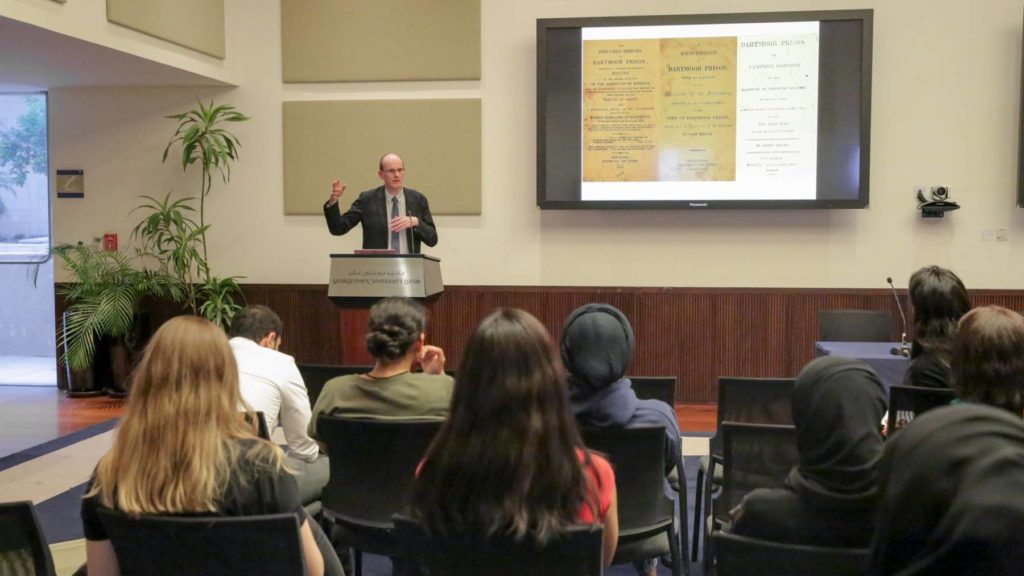Dartmoor Prison and the Origins of Carceral Segregation

On April 17, 2019, Dr. Nicholas Guyatt, a Reader in North American History at the University of Cambridge, gave a public talk at GU-Q titled “Dartmoor Prison and the Origins of Carceral Segregation” where he presented his research for a forthcoming book on the early history of racial segregation policies in American penal systems.
In his talk, Dr. Guyatt explained how Dartmoor Prison, constructed in England in the early 1800s, was used to hold prisoners of the Napoleonic Wars, including American prisoners from the War of 1812. While American society was heavily segregated at the time, American navy fleet ships were far more integrated. For this reason, he said, a substantial number of Dartmoor’s inmates were African American and other people of color. The non-white inmates were initially mixed in with the white American and French prisoners, and over time, the prison inmates took over the prison’s internal discipline.
In his talk, which was moderated by Dr. Karine Walther, Dr. Guyatt discussed how the assertion of black voices in this internal decision-making process led to complaints from the white American inmates, and a petition demanding that the British jailers give the black prisoners separate quarters. Dartmoor thus represents the first segregated prison in American history, and an important case study of the evolution of race-based American prison programs.
While in Doha for his talk, Dr. Guyatt also met with GU-Q students to offer guidance and a comparative overview of graduate degree programs in the U.S. and the U.K.
Dr. Guyatt’s academic focus is on the history of colonial America, the Atlantic World and the United States in the eighteenth and nineteenth centuries. He works on questions of race and national belonging, on the intellectual history of American imperialism, and in the development of ideas about world order during the long nineteenth century.